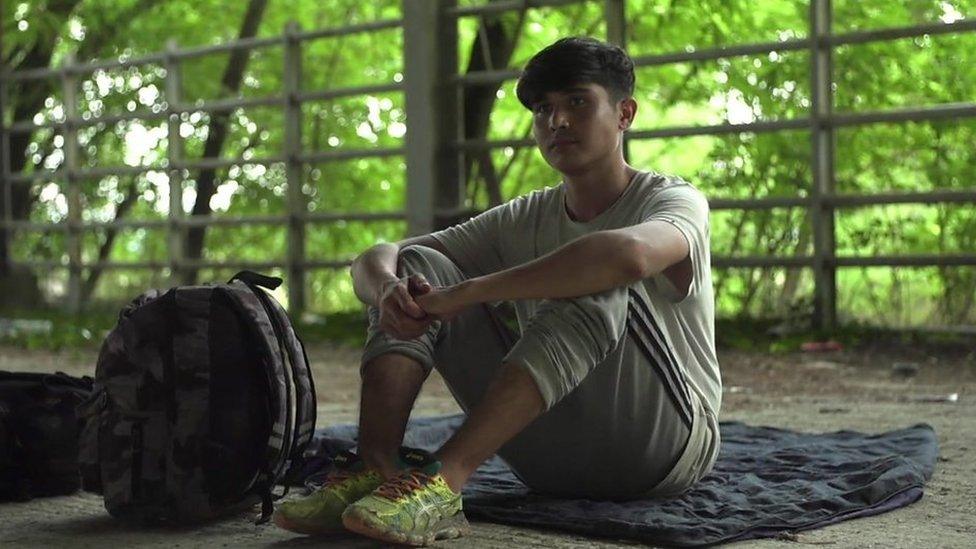Moria migrants: Greece calls for European action after fire at camp
- Published
The BBC's Jean Mackenzie reflects on her experiences at the camp
Greece has urged European countries to "move from words of solidarity" to action as it struggles to find shelter for thousands of migrants left homeless after a fire destroyed their camp.
Prime Minister Kyriakos Mitsotakis' comments were echoed by German Chancellor Angela Merkel who said the EU must share more responsibility.
France, Germany and the Netherlands have offered to take in some migrants.
About 13,000 people had been living in squalor in the Moria camp on Lesbos.
For a third night families were sleeping on roads, in fields, car parks and even in a cemetery after fleeing the camp. The government said it would take days to find accommodation for them.
Near the ruins of Moria - Greece's largest camp - local residents blocked roads to stop charities from delivering aid and said they were against the construction of new tents.
What have the Greek and EU leaders said?
Prime Minister Mitsotakis said the migrant crisis was Europe's problem, and concrete action was needed by the EU to tackle it.
"Europe must move from words of solidarity to a policy of acts of solidarity," he was quoted as saying by AFP news agency at a summit of Mediterranean leaders in Corsica.
Migrants are struggling to cope out in the open
Mrs Merkel said she had agreed "as a preliminary step" to a request by Mr Mitsotakis to take in some 400 unaccompanied minors who had been transferred from Lesbos to the Greek mainland.
"Germany and France will participate in this. I hope several other [EU] member states will do so too," she said. "Migration is not just the problem of the countries where people arrive. Neither is it just Germany's problem. It must become more of a European responsibility."
The Netherlands agreed to take in 50 children.
Touring the burnt-out Moria site on Thursday, European Commission's Vice-President Margaritis Schinas said it was "inconceivable" that the EU did not yet have a unified migration policy.
He said the commission's proposals for a new pact on migration and asylum, due to be presented later this month, would "put an end to this unacceptable situation".
How to deal with the mass arrivals of migrants, mainly to Italy and Greece, has divided the EU for years. Italy and Greece have accused wealthier northern countries of failing to do more, while a number of central and eastern nations are openly resistant to the idea of taking in a quota of migrants.
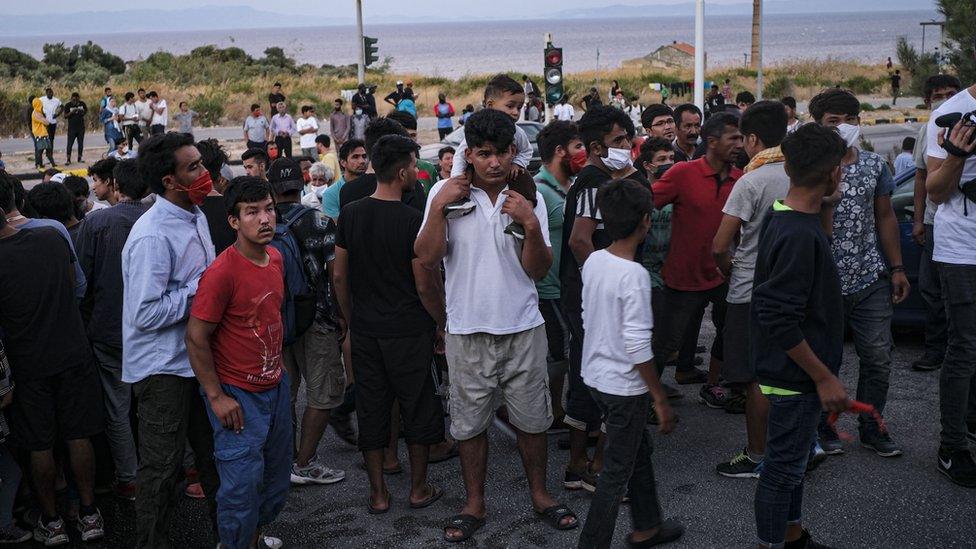
Thousands of migrants have been left homeless after the fire
What is being done for the migrants?
Greece is sending three ships to Lesbos to provide accommodation for some 2,000 migrants. The Blue Star Chios ferry, which has capacity to house 1,000 people, has now docked at the Lesbos port of Sigri. Two naval vessels are also on their way.
About 35 people who fled the fires on Tuesday and Wednesday night had tested positive for Covid-19. Eight of them are believed to have been located and isolated since the fires broke out.
On a parking lot outside a supermarket on Thursday, hundreds of migrants, including families with small children, waited for bottled water and food to be distributed.
"There is no food, no milk for the baby," Congolese migrant Natzy Malala, who had a newborn infant and an eight-year-old girl, told Reuters news agency.
Any attempt by the authorities to rebuild the Moira camp may be met by hostility from local residents.
"Now is the time to shut down Moria for good," Vangelis Violatzis, a local municipal leader, told AFP. "We don't want another camp, and we will oppose any construction work. We've faced this situation for five years, it's time for others to bear this burden."
- Published4 March 2020
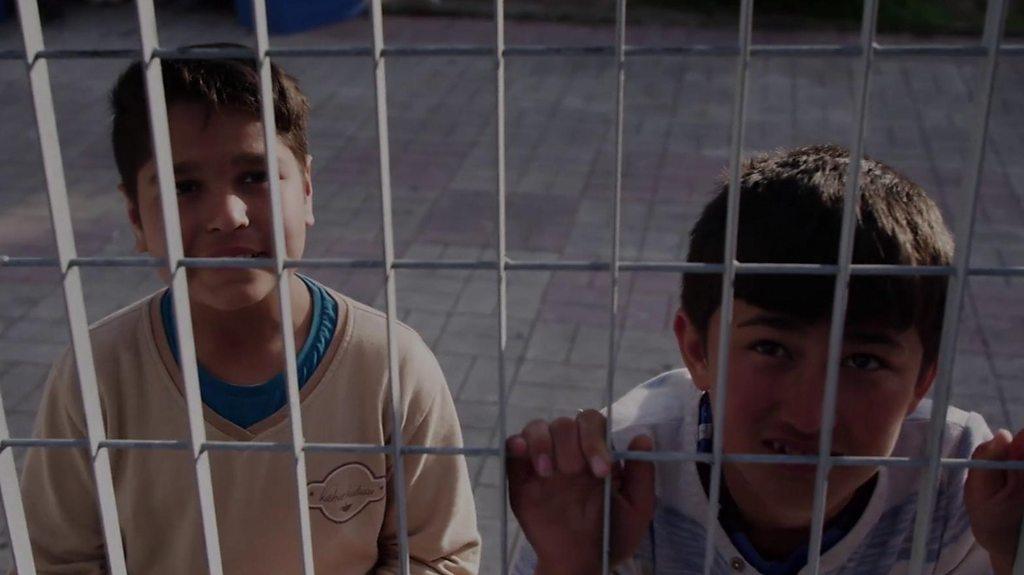
- Published3 February 2020
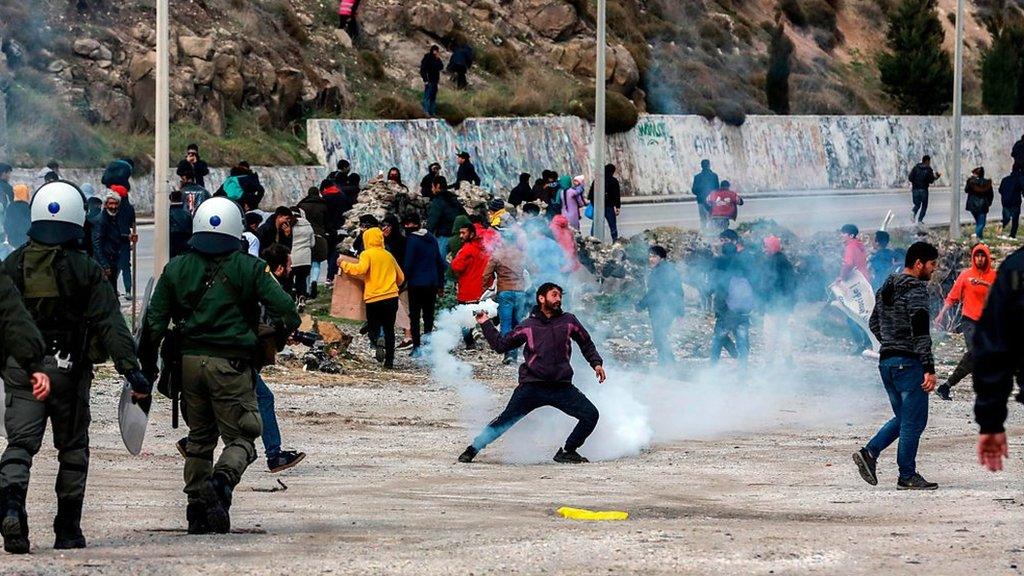
- Published22 January 2020
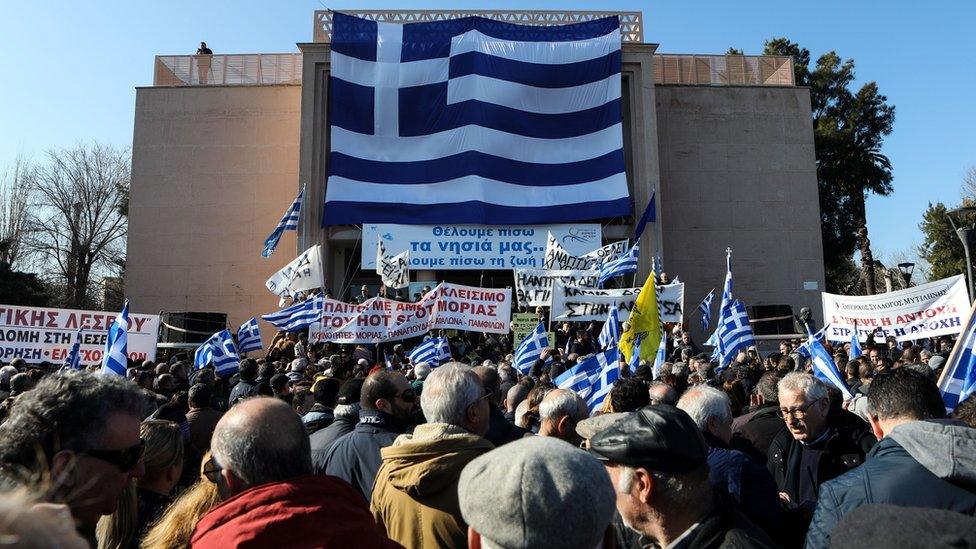
- Published31 August 2020
